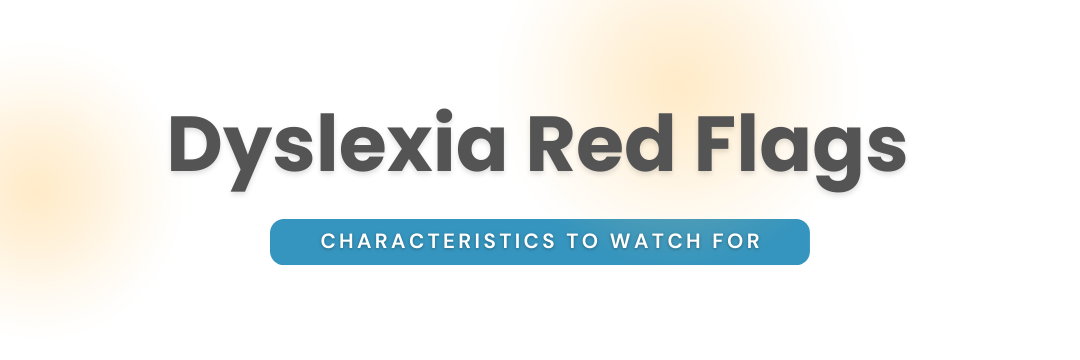Adults: It’s Not Too Late
Dyslexia doesn’t end after school—and neither should support.
Many adults with dyslexia were never identified in school, yet they continue to navigate reading, writing, memory, and communication challenges every day. Whether you’re in the early stages of your career, reentering the workforce, or aiming to grow professionally, understanding your learning profile can open new doors. This part of the Resource Hub is here to guide you— without judgment, jargon, or confusion.
Could This Be Me?
Understanding adult dyslexia starts with self-awareness.
Please check each sign you have seen or are currently seeing in yourself or a loved one. If you check three or more of the following, we encourage you to complete the form and submit it below to receive more information from us.
If you prefer a physical copy, you can download the form HERE.
Co-Occurring Learning Challenges
Individuals with dyslexia may have other related challenges. However, you can have dyslexia without other associated challenges. Some of the co-existing struggles are described below.
-
Handwriting that is difficult to read (messy, ineligible)
Poor or slow handwriting
Poor or inconsistent letter formation (odd starting and stopping points)
Spacing between words, or letters within words, is poor (squished or far apart)
Punctuation is missing
Letters sit above or below the line (tails don’t go below line)
Slant of letters is inconsistent
Letter height and/or letter height relationships are inconsistent.
Difficulty copying from the board or page to page
Poor fine motor skills
Unsure of handedness (right, left, or both)
Difficulty keeping up with taking notes in class
Does not like to write (the physical act)
-
Difficulty counting accurately 1-10 and into teen numbers
Trouble understanding number quantities and place values
Lack of place value knowledge
Difficult knowing mathematical symbols (+) (-) (x) (/)
Difficult knowing mathematic language: Addition / subtraction / sum / difference
Difficult knowing mathematic language: multiplication / division
Understanding how numbers fit together
Recalling math facts, like 2 + 4 = 6, 3 x 4 = 12
Using concepts like “less than” “more than”
Telling left from right
Reading a clock with hands
Working with dollars and coins
May misread or miswrite numbers (17 and 71)
Difficulty memorizing and retrieving math facts (multiplication facts)
Difficulty copying math problems and organizing written work
Many calculation errors
Difficulty retaining math vocabulary concepts
-
Activation: Difficulty organizing, prioritizing, and activating to complete work
Focus: Trouble focusing, sustaining and shifting attention to a task
Effort: Difficulty sustaining effort to continue work when it is hard
Emotion: Managing frustration and emotions
Memory: trouble utilizing working memory and accessing information
Action: unable to monitor and self-regulate personal actions
Self-reflection
Questions to help identify patterns in your work or daily life:
-
Do you reread the same information several times to understand it?
Is keeping your place when reading longer documents or emails hard?
Do you avoid reading aloud in meetings or group settings?
-
Do you often struggle to spell common words correctly, especially when under pressure?
Do your emails or written reports take much longer to compose than they seem to for others?
Do you worry that your writing sounds less organized or polished than you think?
-
Is it difficult to remember verbal instructions unless they’re written down?
Do you mix up dates, times, or sequences—like steps in a process or parts of a conversation?
Do you lose track of tasks or deadlines without reminders or lists?
-
Do you struggle to find the right words when speaking, especially on the spot?
Do you speak softly or mumble due to fear of not pronouncing words correctly?
Do you feel more confident explaining things verbally than writing them down—or vice versa?
Have others misunderstood your written communication or asked for clarification?
-
Have you found ways to cope with challenges without fully understanding the root cause?
Do you feel you must work harder than others to produce the same results?
Have you avoided promotions, new tasks, or leadership roles due to fear of exposure or self-doubt?
What You Can Do Today
Understanding your challenges is the first step to overcoming them.
If you’ve spent years feeling like reading, writing, or organization are harder than they should be, you’re not alone— and you’re not imagining it. Many adults with dyslexia go undiagnosed, relying on coping strategies without ever learning why specific tasks are so difficult.
Today can be the day that changes.
Getting a professional assessment is one of the most empowering steps you can take. It can reveal the true reason behind your challenges and provide a clear plan for moving forward.
Whether it confirms dyslexia or another learning difference, it can open the door to personalized interventions, tools, and strategies that work for you.



